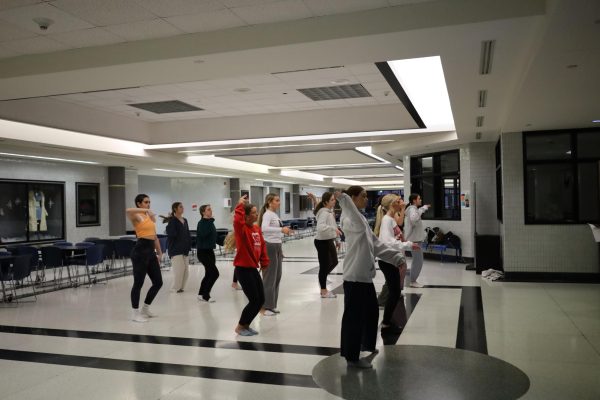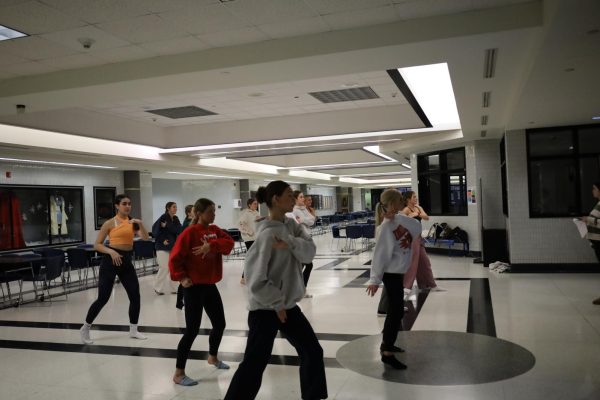Column: Don’t Blame the Education System
The U.S. public education system is routinely blamed for poor American academic performance and interest. While I acknowledge the U.S. education system isn’t perfect (no education system is) and is drastically underfunded, I firmly believe most problems surrounding education in the U.S. are a result of societal attitudes toward education not the underlying system itself.
Part of the problem lies within our modern media system. Across the board, in films, television and the news, bright students are reduced to the caricature of a stereotypical “nerd.” It’s gotten to the point where, to the media, if you’re even interested in learning and exploring an academic field, you’re automatically associated with this stereotype. Sure some shows, such as the West Wing, turn these assumptions on their heads, but by and large lazy directors continue to reuse the same tired cliches. It’s not just in adult programming, even the Disney Channel is full of the same underlying message.
To young children, this comes across as basically stating society doesn’t value a genuine love for learning. The natural conclusion is then “What’s the point in even making the effort to care about an education? What’s the point exploring new areas? What’s the point enjoying learning or reading?”
Sure they might show up to school and try to get good grades to appease their parents, but by this point the true battle, which is getting students to enjoy learning, discovery and exploration, has already been lost.
Amazingly, despite these obstacles, there are countless students who sustain a genuine academic curiosity throughout their lives but the number is far fewer than it should be. If we want to improve American educational performance, instead of crying about standardized tests we need to take a good hard look at our underlying portrayal of education in the media.
Your donation will support the student journalists of Carmel High School - IN. Your contribution will allow us to purchase equipment and cover our annual website hosting costs.

































![British royalty are American celebrities [opinion]](https://hilite.org/wp-content/uploads/2024/03/Screenshot-2024-03-24-1.44.57-PM.png)



















![Chelsea Meng on her instagram-run bracelet shop [Biz Buzz]](https://hilite.org/wp-content/uploads/2024/04/IMG_2446-1200x838.jpg)
![Review: Quiet on Set: The Dark Side of Kids TV is the long awaited exposé of pedophilia within the children’s entertainment industry [MUSE]](https://hilite.org/wp-content/uploads/2024/04/unnamed.jpg)
![Review: “The Iron Claw” cannot get enough praise [MUSE]](https://hilite.org/wp-content/uploads/2024/04/unnamed.png)
![Review: “The Bear” sets an unbelievably high bar for future comedy shows [MUSE]](https://hilite.org/wp-content/uploads/2024/03/unnamed.png)
![Review: “Mysterious Lotus Casebook” is an amazing historical Chinese drama [MUSE]](https://hilite.org/wp-content/uploads/2024/03/0.webp)
![Review in Print: Maripaz Villar brings a delightfully unique style to the world of WEBTOON [MUSE]](https://hilite.org/wp-content/uploads/2023/12/maripazcover-1200x960.jpg)
![Review: “The Sword of Kaigen” is a masterpiece [MUSE]](https://hilite.org/wp-content/uploads/2023/11/Screenshot-2023-11-26-201051.png)
![Review: Gateron Oil Kings, great linear switches, okay price [MUSE]](https://hilite.org/wp-content/uploads/2023/11/Screenshot-2023-11-26-200553.png)
![Review: “A Haunting in Venice” is a significant improvement from other Agatha Christie adaptations [MUSE]](https://hilite.org/wp-content/uploads/2023/11/e7ee2938a6d422669771bce6d8088521.jpg)
![Review: A Thanksgiving story from elementary school, still just as interesting [MUSE]](https://hilite.org/wp-content/uploads/2023/11/Screenshot-2023-11-26-195514-987x1200.png)
![Review: When I Fly Towards You, cute, uplifting youth drama [MUSE]](https://hilite.org/wp-content/uploads/2023/09/When-I-Fly-Towards-You-Chinese-drama.png)
![Postcards from Muse: Hawaii Travel Diary [MUSE]](https://hilite.org/wp-content/uploads/2023/09/My-project-1-1200x1200.jpg)
![Review: Ladybug & Cat Noir: The Movie, departure from original show [MUSE]](https://hilite.org/wp-content/uploads/2023/09/Ladybug__Cat_Noir_-_The_Movie_poster.jpg)
![Review in Print: Hidden Love is the cute, uplifting drama everyone needs [MUSE]](https://hilite.org/wp-content/uploads/2023/09/hiddenlovecover-e1693597208225-1030x1200.png)
![Review in Print: Heartstopper is the heartwarming queer romance we all need [MUSE]](https://hilite.org/wp-content/uploads/2023/08/museheartstoppercover-1200x654.png)























![Seniors Jillian Rang and Athul Ramkumar practice their presentation at the DECA state competition on March 5, 2024. Arya Patel, DECA paper head and junior, said, As they [students] begin to make their final preparations, its important to remember that making it to this point is an incredible achievement.](https://hilite.org/wp-content/uploads/2024/04/IMG_8285-600x400.jpg)





